Related Research Articles
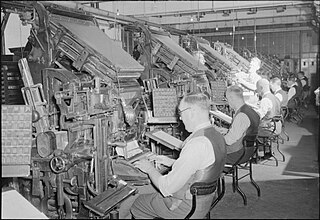
The history of British newspapers begins in the 17th century with the emergence of regular publications covering news and gossip. The relaxation of government censorship in the late 17th century led to a rise in publications, which in turn led to an increase in regulation throughout the 18th century. The Times began publication in 1785 and became the leading newspaper of the early 19th century, before the lifting of taxes on newspapers and technological innovations led to a boom in newspaper publishing in the late 19th century. Mass education and increasing affluence led to new papers such as the Daily Mail emerging at the end of the 19th century, aimed at lower middle-class readers.

The Daily Express is a national daily United Kingdom middle-market newspaper printed in tabloid format. Published in London, it is the flagship of Express Newspapers, owned by publisher Reach plc. It was first published as a broadsheet in 1900 by Sir Arthur Pearson. Its sister paper, the Sunday Express, was launched in 1918. In June 2022, it had an average daily circulation of 201,608.
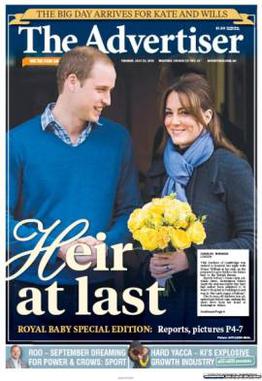
The Advertiser is a daily tabloid format newspaper based in the city of Adelaide, South Australia. First published as a broadsheet named The South Australian Advertiser on 12 July 1858, it is currently a tabloid printed from Monday to Saturday. The Advertiser came under the ownership of Keith Murdoch in the 1950s, and the full ownership of Rupert Murdoch in 1987. It is a publication of Advertiser Newspapers Pty Ltd (ADV), a subsidiary of News Corp Australia, itself a subsidiary of News Corp. Through much of the 20th century, The Advertiser was Adelaide's morning broadsheet, The News the afternoon tabloid, with The Sunday Mail covering weekend sport, and Messenger Newspapers community news. The head office was relocated from a former premises in King William Street, to a new News Corp office complex, known as Keith Murdoch House at 31 Waymouth Street.
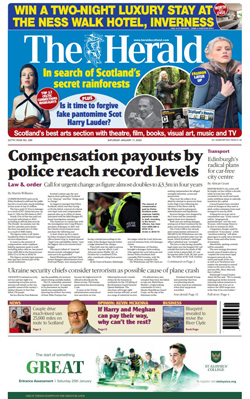
The Herald is a Scottish broadsheet newspaper founded in 1783. The Herald is the longest running national newspaper in the world and is the eighth oldest daily paper in the world. The title was simplified from The Glasgow Herald in 1992. Following the closure of the Sunday Herald, the Herald on Sunday was launched as a Sunday edition on 9 September 2018.
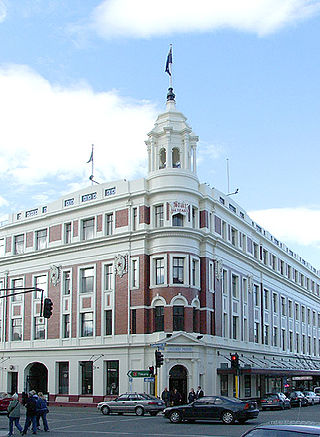
The Otago Daily Times (ODT) is a newspaper published by Allied Press Ltd in Dunedin, New Zealand. The ODT is one of the country's four main daily newspapers, serving the southern South Island with a circulation of around 26,000 and a combined print and digital annual audience of 304,000. Founded in 1861 it is New Zealand's oldest surviving daily newspaper – Christchurch's The Press, six months older, was a weekly paper until March 1863.

George Outram was a humorous poet, Scottish advocate, friend of Professor John Wilson, and for some time editor of The Herald in Glasgow.

The Press is a daily newspaper published in Christchurch, New Zealand, owned by media business Stuff Ltd. First published in 1861, the newspaper is the largest circulating daily in the South Island and publishes Monday to Saturday. One community newspaper—Northern Outlook—is also published by The Press and is free.
The Glasgow Times is an evening tabloid newspaper published Monday to Saturday in the city of Glasgow, Scotland. Called The Evening Times from 1876, it was rebranded as the Glasgow Times on 4 December 2019.
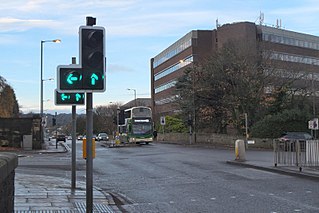
Johnston Press plc was a multimedia company founded in Falkirk, Scotland, in 1767. Its flagship titles included UK-national newspaper the i, The Scotsman, the Yorkshire Post, the Falkirk Herald, and Belfast's The News Letter. The company was operating around 200 newspapers and associated websites around the United Kingdom and the Isle of Man when it went into administration and was the purchased by JPIMedia in 2018. The Falkirk Herald was the company's first acquisition in 1846. Johnston Press's assets were transferred to JPIMedia in 2018, who continued to publish its titles.
The Scottish Daily News (SDN) was a left-of-centre daily newspaper published in Glasgow between 5 May and 8 November 1975. It was hailed as Britain's first worker-controlled, mass-circulation daily, formed as a workers' cooperative by 500 of the 1,846 journalists, photographers, engineers, and print workers who were made redundant in April 1974 by Beaverbrook Newspapers when the Scottish Daily Express closed its printing operations in Scotland and moved to Manchester.
The Edinburgh Courant was a broadsheet newspaper from the 18th century. It was published out of Edinburgh, Midlothian, Scotland. Its first issue was dated 14–19 February 1705 and was sold for a penny. It was Scotland's first regional newspaper and it was produced twice weekly for five years, thereafter continuing as the Scots Courant until April 1720.
The Falkirk Herald is a weekly newspaper and daily news website published by National World. It provides reportage, opinion and analysis of news, current affairs and sport in the towns of Falkirk, Camelon, Grangemouth, Larbert, Stenhousemuir and Denny as well as the neighbouring villages of Polmont, Redding, Brightons, Banknock and Bonnybridge. Its circulation area has a total population of 151,600, the fifth largest urban area in Scotland. It was named Weekly Newspaper of the Year at the 2013 Scottish Press Awards.

Sir Arthur Beverley Baxter, FRSL was a journalist and politician. Born in Toronto, Canada, he worked in the United Kingdom for the Daily Express and as a theatre critic for the London Evening Standard and was a Member of Parliament (MP) for the Conservative Party from 1935 to his death.

Sir Edward Hulton, 1st Baronet was a British newspaper proprietor and thoroughbred racehorse owner.
John Rutherford Gordon was a Scottish newspaper editor and columnist.
Manchester Evening Chronicle was a newspaper established by Sir Edward Hulton, a Manchester City chairman, a newspaper proprietor and a racehorse owner. It started publication in 1897, was renamed Evening Chronicle in 1914 but stayed in Manchester. It continued publication under various ownerships until 1963, when it was merged with the more successful Manchester Evening News and discontinued publication.
The Glasgow Argus was a Scottish newspaper, published biweekly from 1833 to 1847. It took a reforming editorial line, supporting abolitionism and opposing the Corn Laws. The Argus was perceived as the paper of the supporters of the Glasgow merchant and politician James Oswald.
The Dumfries Courier is a weekly newspaper published in Annan, Scotland. It was founded in 1809 by Rev. Dr Henry Duncan (1774-1846) as The Dumfries and Galloway Courier and is currently published by the DNG Media Group as the Dumfries Courier.

James Pagan (18 October 1811 – 11 February 1870) was a Scottish reporter and managing editor for the Glasgow Herald and a noted antiquarian. He is credited with transitioning the Herald from a tri-weekly publication to one of the first daily newspapers in Scotland as well as greatly improving the standard of reporting in that country.
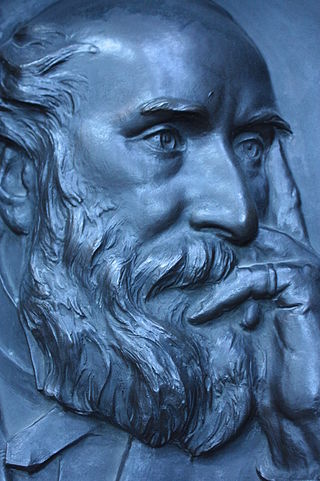
James Hedderwick LLD (1814–1897) was a Scottish poet, journalist and newspaper proprietor. He founded the famous Glasgow newspaper, the Evening Citizen.
References
- ↑ "James David Hedderwick". www.glasgowwestaddress.co.uk. Retrieved 3 June 2021.
- ↑ Oxford Dictionary of National Biography: Hedderwick
- ↑ Boyce (2004)
- ↑ "Glasgow guide". Archived from the original on 5 July 2008. Retrieved 27 November 2008.
- ↑ "Newspapers". GENUKI. Retrieved 27 November 2008.
- ↑ The Glasgow story
- ↑ "Express Newspapers Ltd" (PDF). Archived from the original (PDF) on 23 October 2008. Retrieved 29 November 2008.
Bibliography
- Boyce, D. George (2004). "Aitken, William Maxwell, first Baron Beaverbrook". Oxford Dictionary of National Biography (online ed.). Oxford University Press. doi:10.1093/ref:odnb/30358.(Subscription or UK public library membership required.)